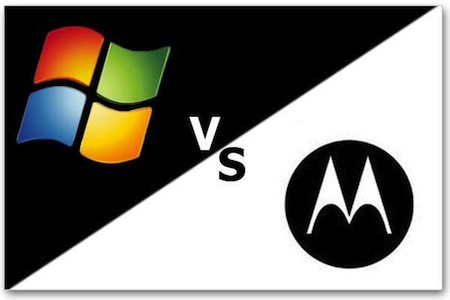The International Trade Commission has ruled that Motorola’s Android devices are banned from the USA until the mobile company agrees patent infringement with Microsoft.
There’s something of an industry joke that Microsoft earns more money from Android than it does Windows Phone – and, indeed, more than Google earns from Android. Almost all of the Android OEMs have agreed a settlement with Microsoft whereby they pay a royalty fee for each handset sold, but Motorola has refused to do so. The end result was a patent infringement claim by Microsoft that has resulted in Motorola’s Android devices being banned. What’s particularly intriguing about this is that the Droid series has been successful in America, combining a marketable name (Droid) with a range of devices that made it a good comeback for Motorola.
A few short years ago Motorola had all but slipped into obscurity, so the Android lifeline it received it will no doubt want to keep. That leaves it with two choices: amend the software so it no longer uses Microsoft’s patents, or pay to licence it from Microsoft to keep selling the phones as they are.
The ITC ruled that the Motorola Atrix, Xoom and Droid infringed a Microsoft patent relating to Exchange ActiveSync technology, and the order prohibits “the unlicensed entry for consumption of mobile devices, associated software and components thereof covered by claims 1, 2, 5, or 6 of the United States Patent No. 6,370,566 and that are manufactured abroad by or on behalf of, or imported by or on behalf of, Motorola”. So while the devices themselves have not received banishment, the ruling places into effect a ban on the devices until amendments to the software or an agreement with Microsoft is made.
With Barnes & Noble recently settling with Microsoft for its Android-powered Nook, Motorola is the only major Android maker without a patent licensing deal with Microsoft, and Microsoft itself estimates that its licenses cover more than 70% of all Android devices (phones and tablets) in the USA.
Despite the ruling, Motorola doesn’t seem too concerned, as Jennifer Erickson, a spokesperson for the company, has said that “Although we are disappointed by the Commission’s ruling…Motorola Mobility will not experience any impact in the near term, as the Commission’s ruling is subject to a $0.33/per unit bond during the 60 day Presidential review period.” What this means is that the ruling is not yet final, President Obama has to review it within 60 days who can, if he so chooses, overturn it on the grounds of public policy. Beyond that, Motorola has said it is considering appealing.
While this battle may go on a little longer, it isn’t one-sided when it comes to the two tech giants. Another ITC judge ruled in favour of Motorola in another case, that Microsoft is infringing four of Motorola’s patents. The result of that was a ban on Windows 7 PCs and the Xbox 360 gaming console in Germany. Predictably, Microsoft is appealing the decision.

